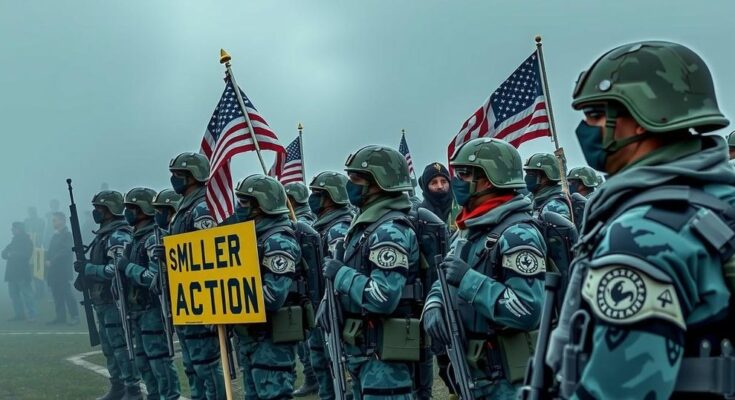Civil society members at COP29 led by activists such as Lidy Nacpil, Jana Rashed, and Leena Eisa, convened a People’s Plenary to connect climate action with the realities of genocide and militarism. They emphasized the urgent need for global accountability in addressing these intertwined issues, mourning lives lost to violence while advocating for climate financing that supports reparative justice. Their message calls for an end to complicity in violence against marginalized communities worldwide.
At COP29 in Baku, Azerbaijan, civil society groups convened a People’s Plenary titled “Pay Up, Stand Up: Finance Climate Action, Not Genocide.” This gathering highlighted critical connections between climate action and the ongoing violence faced by marginalized groups, particularly in Palestine, Lebanon, and Sudan. Participants, including prominent climate activists like Lidy Nacpil, Jana Rashed, and Leena Eisa, called for an end to the funding of genocidal actions linked to state-sponsored violence and environmental degradation, underlining a profound interconnectedness of climate justice and global justice. The activists unveiled a list of names of individuals who have lost their lives due to military aggression, publicly mourning those affected while raising awareness about the urgent need for climate reparations and accountability from global powers.
The article documents a significant civil society intervention at the 29th Conference of the Parties (COP29) of the United Nations Framework Convention on Climate Change (UNFCCC), focusing on the intersection of climate change, militarism, and social justice. Activists voice concerns regarding systemic violence against marginalized communities, especially in the Global South, which often goes unrecognized in mainstream climate dialogues. The plenary illustrates the challenges posed by institutional regulations that stifle direct criticism of specific states, limiting the ability of activists to fully express their grievances and advocate for justice.
The actions at COP29 underscore the necessity of integrating voices from marginalized communities into climate discussions to address the ongoing crises of genocide and environmental destruction. The activists emphasize that climate injustices cannot be decoupled from broader socio-political struggles. Their call for action signifies a wider demand for accountability and justice, urging governments to prioritize climate finance directed towards reparative justice rather than complicity in violence. Overall, their unified stance reinforces the idea that genuine climate solutions must also confront and rectify systemic injustices on a global scale.
Original Source: www.democracynow.org




